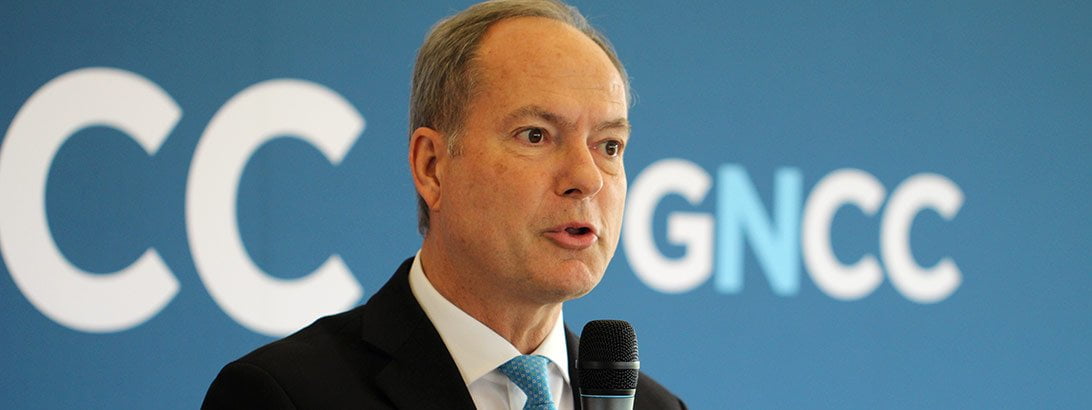In this edition:
- Ontario government introduces Less Red Tape, More Common Sense Act, 2023
- Raw material prices up 2.4% year-over-year, softwood lumber continues fall while precious metal costs increase
- Catholic teachers deliver “overwhelming” strike mandate
- Competition Bureau report finds Canada’s competitive intensity in decline
- Minister Bethlenfalvy to release annual Fall Economic Statement November 2
- Fulton Fitness owner calling it quits after 32 years
- Council for Aboriginal Business and Global Affairs Canada release Adàwe: Export Experiences of Indigenous Entrepreneurs report
- Focus on Equity, Diversity & Inclusion

Ontario government introduces Less Red Tape, More Common Sense Act, 2023
Today, the Ontario government introduced the Less Red Tape, More Common Sense Act, 2023 which, if passed, is intended to help improve services for people and reduce costs for businesses. This bill is a key part of the province’s Fall 2023 Red Tape Reduction package which also includes several regulatory and policy changes to make it easier to interact with government, resulting in as many as 100,000 hours in time savings for people and businesses each year.
As the Ministry of Red Tape Reduction continues its work, people and businesses are encouraged to visit the Red Tape Portal at Ontario.ca/redtape and submit their ideas on ways the province can continue to make it easier to access services and do business in Ontario.

Raw material prices up 2.4% year-over-year, softwood lumber continues fall while precious metal costs increase
Prices of products manufactured in Canada, as measured by the Industrial Product Price Index (IPPI), rose 0.4% month over month in September and increased 0.6% year over year. Prices of raw materials purchased by manufacturers operating in Canada, as measured by the Raw Materials Price Index (RMPI), increased 3.5% on a monthly basis in September and rose 2.4% year over year.
Key upward contributions to the year-over-year movement in September were higher prices for motorized and recreational vehicles (+4.0%), gold (+15.8%), silver (+24.7%), motor gasoline (+4.4%) as well as fresh and frozen beef and veal (+19.9%).
Key downward contributions to the year-over-year movement in September were lower prices for softwood lumber (-17.8%), ammonia and chemical fertilizers (-31.9%), diesel fuel (-4.9%), plastic resins (-17.7%), nickel (-12.4%), as well as fresh and frozen pork (-6.6%).

In a province-wide vote conducted on October 18 and 19, Catholic teachers – the members of the Ontario English Catholic Teachers’ Association (OECTA) – delivered an overwhelming strike mandate, with 97 per cent voting in favour of authorizing strike action, if necessary.
OECTA has issued the following statement from President René Jansen in de Wal:
“Our overwhelming strike mandate sends a clear message to the Ford Conservative government and the representatives of Catholic school boards that Catholic teachers want to see meaningful progress and results at the bargaining table that address the lack of resources, supports, and time teachers need to best serve their students… Our goal, as always, is to negotiate a fair collective agreement: one that recognizes Catholic teachers’ vital contributions to Ontario’s society and economy, and makes the proper investment – in our students, in our schools, and in the future Ontario deserves.”

Competition Bureau report finds Canada’s competitive intensity in decline
Today, the Competition Bureau published the findings of an in-depth study ꟷ Competition in Canada from 2000 to 2020: An Economy at a Crossroads ꟷ which tracks a decline in Canada’s competitive intensity over the last two decades.
The study is the first of its kind in Canada to provide a comprehensive analysis of indicators of competition across the Canadian economy. These include:
- Concentration, which indicates whether a few companies dominate an industry;
- Industry dynamism, which indicates whether new companies are challenging established ones; and
- Profits and markups, which indicate whether competition is pushing companies to keep their prices low.
The Bureau’s analysis found that Canada’s competitive intensity has fallen over the years, a finding that was reflected across all the indicators measured.

Minister Bethlenfalvy to release annual Fall Economic Statement November 2
The Ontario government is releasing its annual Ontario Economic and Fiscal Review, more commonly referred to as the Fall Economic Statement, on Thursday, November 2, 2023.
Following the release of the Fall Economic Statement, the government will kick off its pre-budget consultation process with in-person townhalls starting on November 6. Minister of Finance Peter Bethlenfalvy and Parliamentary Assistants Stephen Crawford and Rick Byers will visit communities across the province from November 2023 to January 2024 to hear ideas from people, organizations and businesses about what they want to see in the 2024 Budget.
People can also provide their feedback via a guided online survey, a new online submission portal or by mail to the Ministry of Finance.
Visit Ontario.ca/budgetconsultations to learn how to submit your ideas.
Fulton Fitness owner calling it quits after 32 years
After 32 years in downtown St. Catharines, the final treadmill workout is over and the last weight lifted at Fulton Fitness on James Street.
Owner John Fulton said the business wasn’t viable anymore. He was the victim of a one-two punch, first from the pandemic and then ongoing issues with a neighbouring highrise construction project that played havoc with his parking and clientele.
“You can imagine how upset I am with city hall for allowing this situation with the developer to continue to the point where my livelihood has been destroyed,” Fulton said. “I didn’t even have a chance after COVID.”

Council for Aboriginal Business and Global Affairs Canada release Adàwe: Export Experiences of Indigenous Entrepreneurs report
Canadian Council for Aboriginal Business (CCAB) and Global Affairs Canada (GAC) have partnered for a two-part report to better understand the experiences of Indigenous exporters, the challenges they face, and the potential of prosperity and growth they can achieve through trade.
Released today, the first report, Adàwe: Export Experiences of Indigenous Entrepreneurs, provides valuable insights on Indigenous exporters to inform the development of initiatives and policies, empowering the full potential of Indigenous business in Canada.
“This report provides an in-depth examination ofan area of Indigenous growth and opportunity that is often overlooked,” says Matthew Foss, CCAB vice president of research and public policy. “This focus on Indigenous export characteristics and trends will help support the equitable inclusion of Indigenous businesses, and the Canadian economy as a whole.”
CCAB and GAC conducted a national survey of 2,603 Indigenous businesses and case studies in three Indigenous communities. The findings revealed that only 7.2 per cent of Indigenous small and medium enterprises (SMEs) are engaged in export, compared to the Canadian SME average of 12.1 per cent.
Did you know?
The Canadian dollar is the seventh most-traded currency in the world.
Focus on Equity, Diversity and Inclusion
How Canada can make its startup ecosystem more inclusive
Through the Daily Updates, the GNCC aims to deliver important business news in a timely manner. We disseminate all news and information we feel will be important to businesses. Inclusion in the Daily Update is not an endorsement by the GNCC.




